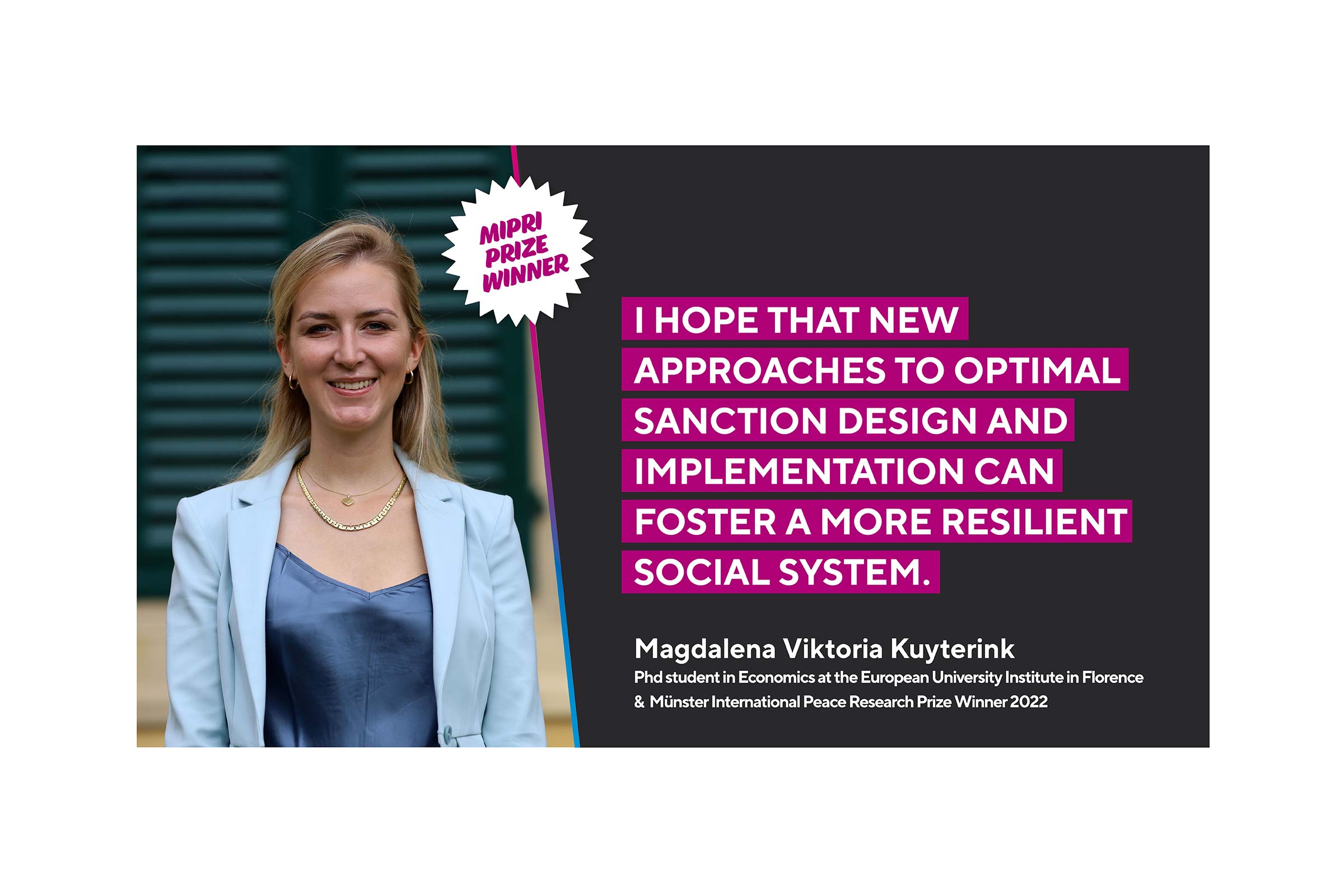
WiRe Meets Mipri: a Guest Interview with Magdalena Viktoria Kuyterink
If you’ve been a visitor to our blog in the past, you might have noticed references here and there to mipri, the Münster International Peace Research Initiative, a programme started by the University of Münster in 2021 in collaboration with the city of Münster to foster future-oriented ideas and support international scholars who are working in peace and conflict research. Mipri looks to continue Münster’s legacy as a space for sustainable peace-building, given that the city served as a the location for the signing of the Peace of Westphalia on October 24, 1648. The Peace of Westphalia ended a terrible decades-long religious war in Europe. In light of today’s situation in Europe, supporting the search for diplomatic conflict-solving solutions feels more important than ever.
To commemorate the 374th signing of this historic treaty, we invited the current mipri fellows to tell us more about their projects on peace and conflict related research.
Enjoy the interview with Magdalena Viktoria Kuyterink
Magdalena Viktoria Kuyterink is an Austrian and Dutch Phd student in Economics at the European University Institute in Florence. She holds an undergraduate degree from Tilburg University in the Netherlands. Her research interests are questions related to the political economy, industrial organization, micro theory and institutions and organizations, applied to a broad set of disciplines, including law, management, political science, education and health.
Within her Phd studies she is part of the Münster Peace Prize and researches about coalition formation and optimal sanction size in international disputes with a reference to the ongoing international crises in the Ukrainian. The project will be guided by Professor Dr. Thomas Apolte and Dr. Lena Gerling, and aims to answer whether the abolishment of unanimity voting could lead to socially more efficient outcomes.
